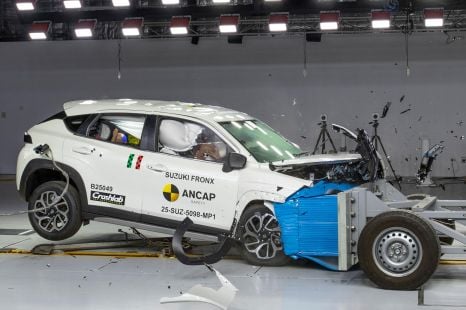

Damion Smy
Suzuki Fronx scores one-star ANCAP rating after seatbelt failure
6 Hours Ago

News Editor
Hyundai technical advisor and former BMW M boss Albert Biermann wants to continue to offer affordable N cars, and future models could be electric – provided they can offer one key feature.
“I think it has to happen. I mean I already made suggestions, it’s a little early to speak about it but we have to do this… there’s no way we would not do it,” said Mr Biermann on the prospect of an affordable N-branded EV.
“But then you come to the point, as you know the C-segment EVs today we don’t use the 800V system, we use a 400V system. No silicon carbide inverters, not the high-speed motors, because of cost.
“So, now you want to make an N with race track capability. With 400V, you better stay at home.
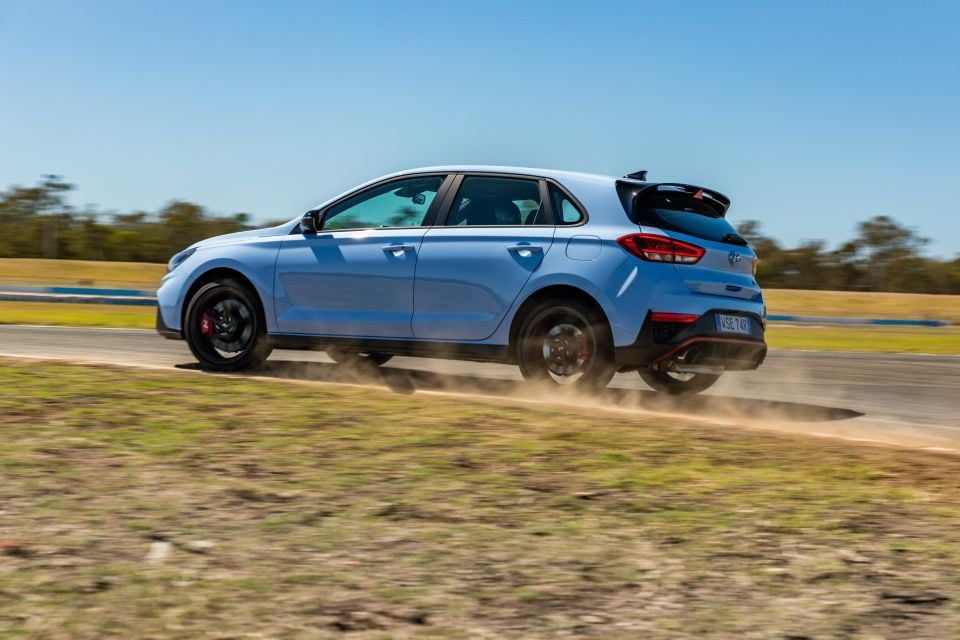
“Because you run double the current, which means four times the heat, everything dies early, so is that acceptable if we come up with something like an i30 N EV and it could not even do one lap on the Nurburgring, and journalists would say, ‘This is no N car. This is nothing. How can they even think about a car like this?’
“Then there is this other C-segment [i.e. i30-sized] car from China. Very cheap, tons of power, 800V, it can go forever, maybe it doesn’t make such fun but it can keep going, so we are a very stupid loser, right? That is the question: how much can you compromise?”
“So that is the challenge, and the ongoing discussion. They keep making these proposals, and I say forget it. You either do it right or you don’t do it.”
While Mr Biermann made it clear he wouldn’t want to see an electric i30 N replacement without an 800V system, he left the door open for something smaller and more affordable with a 400V system.
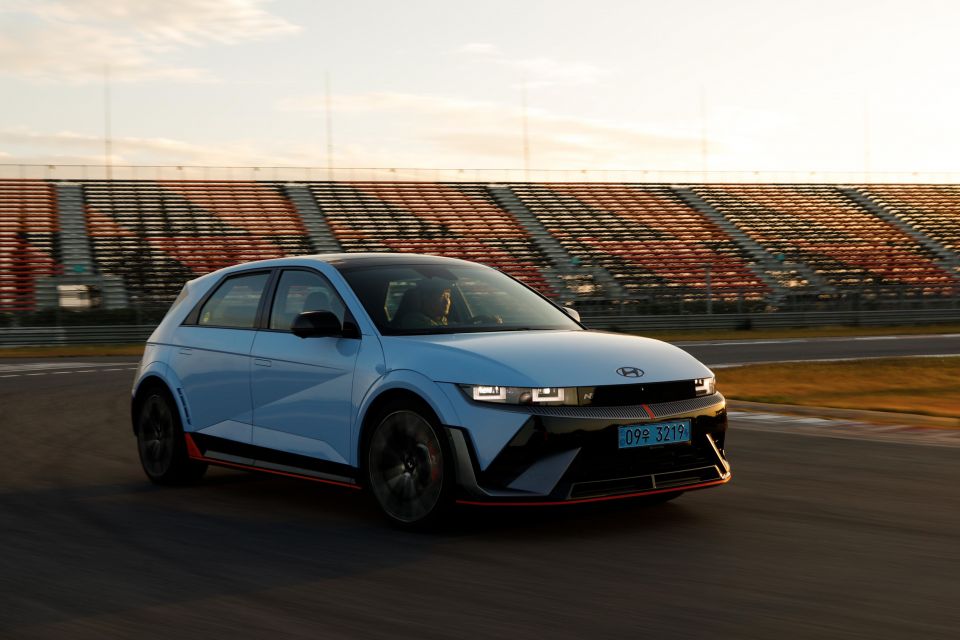
“If it’s like a C-segment car, no way with 400V. B-segment, i20, maybe? It has to be really small, good aero… Not like a CUV or something, really like small body shape,” he said.
“Then maybe with 400V, we can achieve the minimum of racetrack capability you can expect from an N car right. We cannot have something that cannot go on the trick, then we better call it N Line.”
Mr Biermann said he has fought for 800V electrical systems to be used in many Hyundai Motor Company cars, but hasn’t always been successful.
“Many people have not understood yet how good the 800V system is,” he said.
“I had strong fighting for those cars like the new Kona and the Kia car in that C-segment area, fighting for 800V but Kia’s CEO at the time said too expensive, 400V enough.
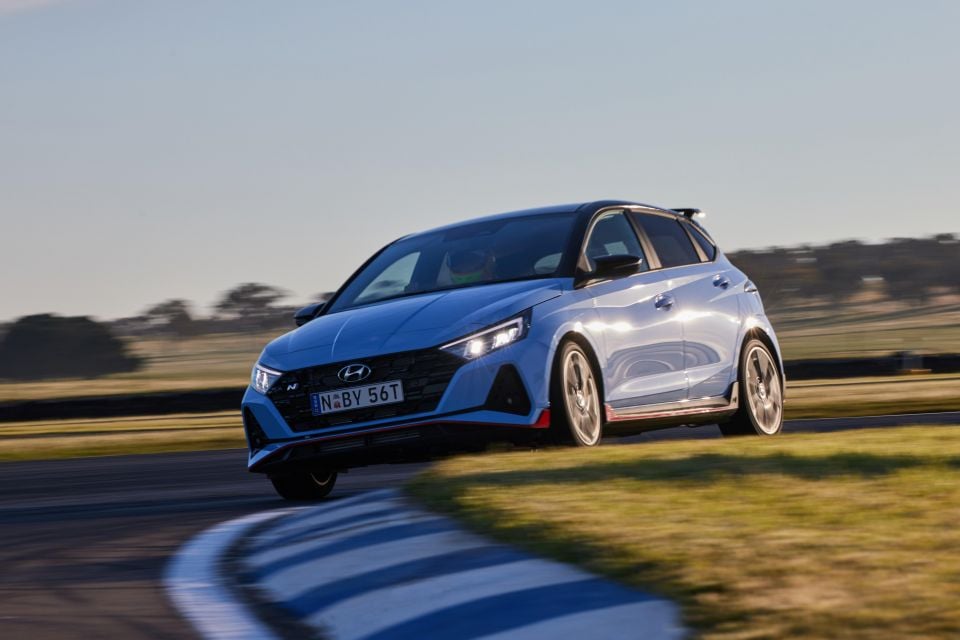
But while a more affordable electric N car is inevitable, Mr Biermann wants combustion-powered N cars to stay around as long as possible.
“Our customer base is at like $50,000, something like that in Australia, right? And now we are going above $100k [with the Ioniq 5 N].
“So we need to have this entry combustion car for the younger people who cannot afford [an electric car].
“So it should continue like forever until really regulation stops it right? That would be my strategy, but I’m just the advisor right?
“For Australia, I mean they try to get everything with an N and like no other market, so I hope we can always have something for you.”
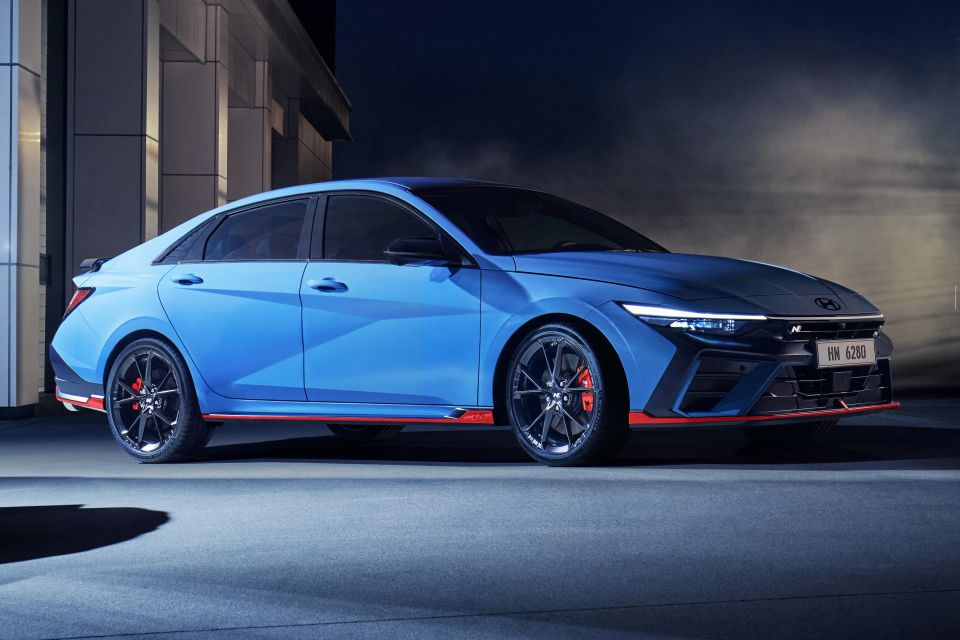
The current i30 Sedan N is set to stick around in markets like Australia and the US, albeit with a larger yet potentially cleaner turbocharged 2.5-litre four-cylinder engine – and a decision will soon be made as to whether it will receive a second generation.
“Australia is safe, US is safe, but someone needs to make a decision, right? And markets other than Australia, forget them. They’re all dreaming on the EV cloud, EV heaven, they don’t care for combustion cars,” he said, appearing to cast doubt on a new i30 N hatch.
In the meantime, the current i30 Hatch is getting another facelift, though it’s unclear for how much longer it’ll be offered.
Hyundai’s European boss recently confirmed the i30 will get another generation, though it’s unclear whether it’ll get an N version.
MORE: Everything Hyundai i20 MORE: Everything Hyundai i30
Where expert car reviews meet expert car buying – CarExpert gives you trusted advice, personalised service and real savings on your next new car.
William Stopford is an automotive journalist with a passion for mainstream cars, automotive history and overseas auto markets.


Damion Smy
6 Hours Ago
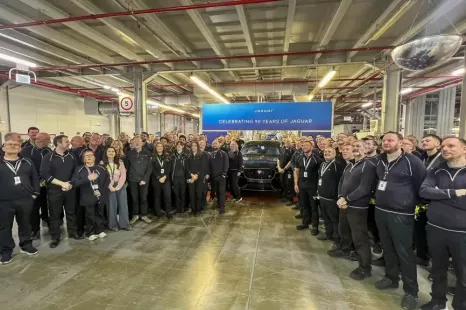

Damion Smy
10 Hours Ago
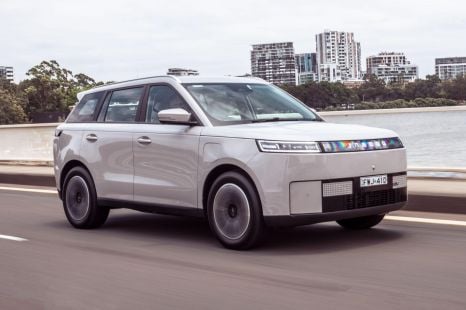

Josh Nevett
12 Hours Ago
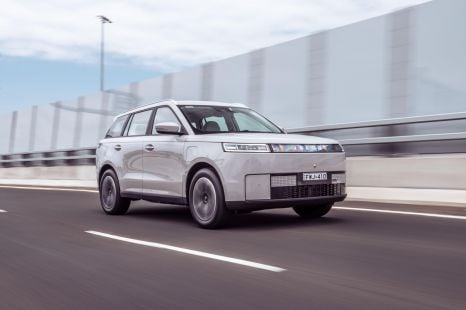

Josh Nevett
12 Hours Ago
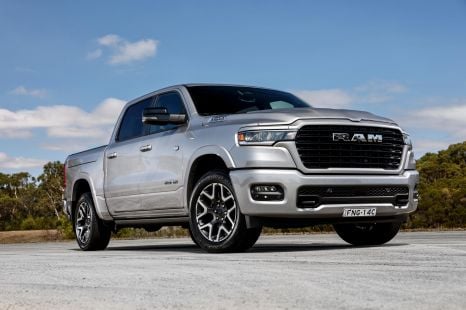

Damion Smy
12 Hours Ago
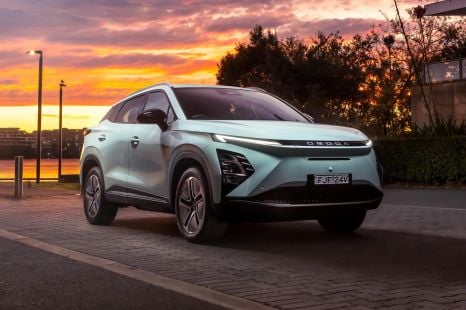

CarExpert.com.au
13 Hours Ago